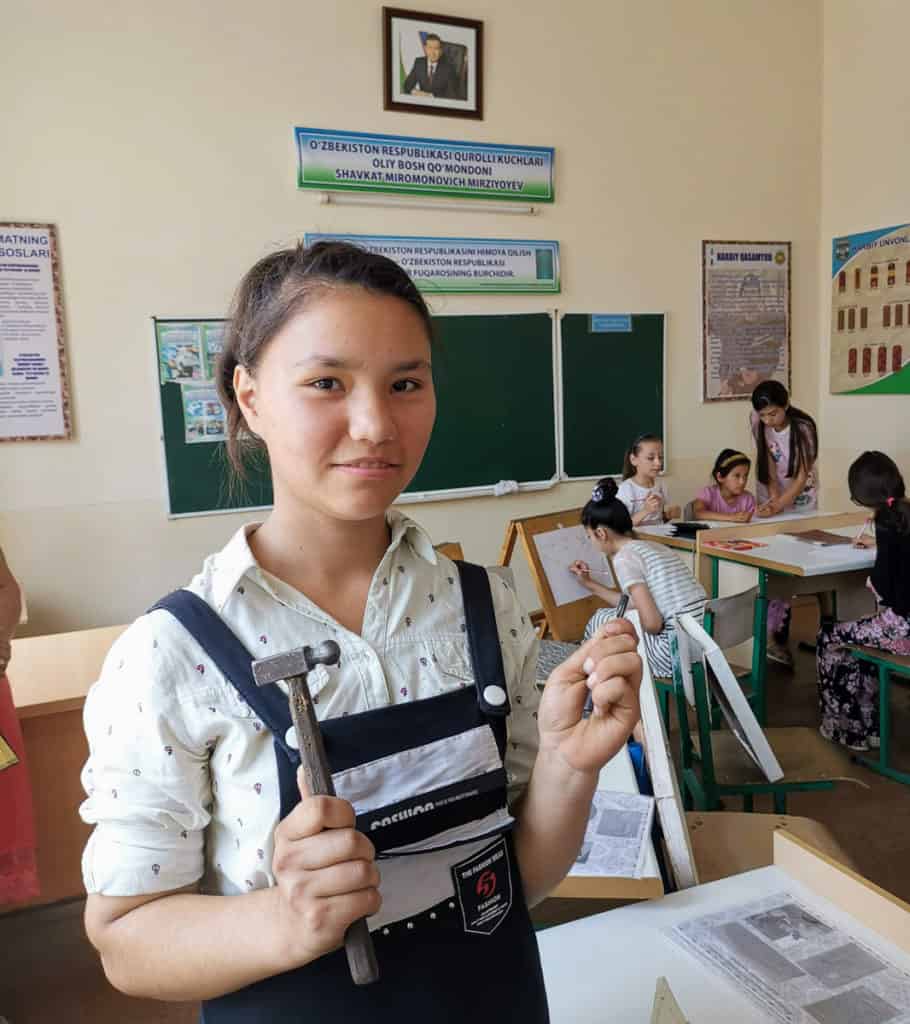Malika is a student at Kokand’s new craft college. Though the field of woodcarving is exclusively male, she dreams of becoming a workcarver herself one day. She has a pride in her skill that is characteristic of a region that we otherwise think of as a thoroughfare for goods from elsewhere. We choose her image for our cover because if reflects an ambitious future for a region of which we know so little.
This issue takes us to the most far-flung corner of the Indo-Pacific (though not from the perspective of those who live there, of course). The Stans, including Central Asia, Pakistan and Afghanistan, evoke legends of the Silk Road when exotic craft goods were exchanged between far East and far West. The many skills learnt at either end of the road are a testament to the benefits of world craft.
As part of the Garland journey, the Stans make a unique contribution to our conversation about the value of what we make. They offer an opportunity to think about the value of skill, particularly in a social context. The concept of hunar (skill) relates to an individual’s capacity in society—what they can make or do. Skills can be shared, as we see in exchanges with Turkey and Japan. The Central Asian blend of associations, workshops, colleges and mahallas (local communities) supports the maintenance and transmission of those skills. We also have stories of skill from Uzbekistan (Samarkand, Rishtan and Margilan), Kazakhstan, Tajikistan, Iran, Indonesia, Himalayas, Afghanistan, Pakistan and Hong Kong. This issue is a challenge to all of us: What are our own capacities that enable us contribute to our world?
We couldn’t publish a Stan issue without reflecting on its exotic associations as a travel destination. This issue also contains stories of the increasingly popular activity of craft tours. We have a directory of those currently on offer, as well as many stories from Uzbekistan (Samarkand, Kokand and Margilan), Lahore, Turkmenistan, West Bengal (Baluchars), Rajasthan, Osaka, Sri Lanka, Mexico, Australia and New Zealand.
Skill is a gift we can pass on to others. While most products can be shipped to all corners of the world, learning a skill still depends largely on personal contact. In travel, simply witnessing the skills of others can inspire us to make more of our lives.
We thank many people who have helped us cover this rare part of the world. For the Quarterly Essay, Christina Sumner generously shared a lifetime of engagement with Central Asia in a captivating essay about the exhibitions and tours she developed there. Aziz Murtazaev gave much time and wisdom to help us gather such a rich haul of stories. And our particular thanks go to the 26 writers who shared such poignant stories for us and future generations. Well done!


